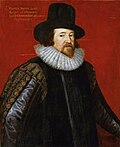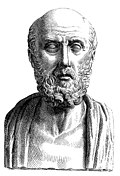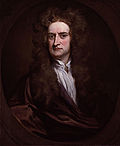Portal:History of science
The History of Science Portal
The history of science covers the development of science from ancient times to the present. It encompasses all three major branches of science: natural, social, and formal. Protoscience, early sciences, and natural philosophies such as alchemy and astrology that existed during the Bronze Age, Iron Age, classical antiquity and the Middle Ages, declined during the early modern period after the establishment of formal disciplines of science in the Age of Enlightenment.
Science's earliest roots can be traced to Ancient Egypt and Mesopotamia around 3000 to 1200 BCE. These civilizations' contributions to mathematics, astronomy, and medicine influenced later Greek natural philosophy of classical antiquity, wherein formal attempts were made to provide explanations of events in the physical world based on natural causes. After the fall of the Western Roman Empire, knowledge of Greek conceptions of the world deteriorated in Latin-speaking Western Europe during the early centuries (400 to 1000 CE) of the Middle Ages, but continued to thrive in the Greek-speaking Byzantine Empire. Aided by translations of Greek texts, the Hellenistic worldview was preserved and absorbed into the Arabic-speaking Muslim world during the Islamic Golden Age. The recovery and assimilation of Greek works and Islamic inquiries into Western Europe from the 10th to 13th century revived the learning of natural philosophy in the West. Traditions of early science were also developed in ancient India and separately in ancient China, the Chinese model having influenced Vietnam, Korea and Japan before Western exploration. Among the Pre-Columbian peoples of Mesoamerica, the Zapotec civilization established their first known traditions of astronomy and mathematics for producing calendars, followed by other civilizations such as the Maya.
Natural philosophy was transformed during the Scientific Revolution in 16th- to 17th-century Europe, as new ideas and discoveries departed from previous Greek conceptions and traditions. The New Science that emerged was more mechanistic in its worldview, more integrated with mathematics, and more reliable and open as its knowledge was based on a newly defined scientific method. More "revolutions" in subsequent centuries soon followed. The chemical revolution of the 18th century, for instance, introduced new quantitative methods and measurements for chemistry. In the 19th century, new perspectives regarding the conservation of energy, age of Earth, and evolution came into focus. And in the 20th century, new discoveries in genetics and physics laid the foundations for new sub disciplines such as molecular biology and particle physics. Moreover, industrial and military concerns as well as the increasing complexity of new research endeavors ushered in the era of "big science," particularly after World War II. (Full article...)
Selected article -

The Manhattan Project was a research and development program undertaken during World War II to produce the first nuclear weapons. It was led by the United States in collaboration with the United Kingdom and Canada.
From 1942 to 1946, the project was directed by Major General Leslie Groves of the U.S. Army Corps of Engineers. Nuclear physicist J. Robert Oppenheimer was the director of the Los Alamos Laboratory that designed the bombs. The Army program was designated the Manhattan District, as its first headquarters were in Manhattan; the name gradually superseded the official codename, Development of Substitute Materials, for the entire project. The project absorbed its earlier British counterpart, Tube Alloys, and subsumed the program from the American civilian Office of Scientific Research and Development. (Full article...)
Selected image

The iconic frontispiece to Johannes Kepler's 1627 Rudolphine Tables pays tribute to earlier great astronomers, including Copernicus, Ptolemy and most prominently Tycho Brahe. It was used in 2005 as the emblem for the joint meeting of the History of Science Society and the Society for the History of Technology.
Did you know
...that in the history of paleontology, very few naturalists before the 17th century recognized fossils as the remains of living organisms?
...that on January 17, 2007, the Doomsday Clock of the Bulletin of the Atomic Scientists moved to "5 minutes from midnight" in part because of global climate change?
...that in 1835, Caroline Herschel and Mary Fairfax Somerville became the first women scientists to be elected to the Royal Astronomical Society?
Selected Biography -
Friedrich Christian Accum or Frederick Accum (29 March 1769 – 28 June 1838) was a German chemist, whose most important achievements included advances in the field of gas lighting, efforts to keep processed foods free from dangerous additives, and the promotion of interest in the science of chemistry to the general populace. From 1793 to 1821 Accum lived in London. Following an apprenticeship as an apothecary, he opened his own commercial laboratory enterprise. His business manufactured and sold a variety of chemicals and laboratory equipment. Accum, himself, gave fee-based public lectures in practical chemistry and collaborated with research efforts at numerous other institutes of science.
Intrigued by the work of Frederick Winsor, who had been championing the introduction of gas lighting in London, Accum too, became fascinated by this innovation. At the request of the Gas Light and Coke Company, he carried out many experiments in this novel field of inquiry. After a time of close working association with this company, he became a member of its board of directors in 1812. The company was charged with founding the first gasworks in London to supply gas lighting to both private and public areas. Accum was instrumental in the conception and design of this extremely successful gasworks. (Full article...)
Selected anniversaries
- 1461 - Death of Georg Purbach, German mathematician and astronomer (b. 1423)
- 1732 - Birth of David Rittenhouse, American astronomer, inventor, and mathematician (d. 1796)
- 1818 - Birth of August Wilhelm von Hofmann, German chemist (d. 1892)
- 1865 - Birth of Charles W. Woodworth, American entomologist (d. 1940)
- 1911 - Birth of Melvin Calvin, American chemist, Nobel laureate (d. 1997)
- 1919 - Death of Loránd Eötvös, Hungarian physicist (b. 1848)
- 1984 - Death of Pyotr Kapitsa, Soviet physicist, Nobel laureate (b. 1894)
- 1992 - Death of Daniel Bovet, Swiss-born pharmacologist, Nobel laureate (b. 1907)
Related portals
Topics
General images
Subcategories
Things you can do
Help out by participating in the History of Science Wikiproject (which also coordinates the histories of medicine, technology and philosophy of science) or join the discussion.
Associated Wikimedia
The following Wikimedia Foundation sister projects provide more on this subject:
-
Commons
Free media repository -
Wikibooks
Free textbooks and manuals -
Wikidata
Free knowledge base -
Wikinews
Free-content news -
Wikiquote
Collection of quotations -
Wikisource
Free-content library -
Wikiversity
Free learning tools -
Wiktionary
Dictionary and thesaurus









































































